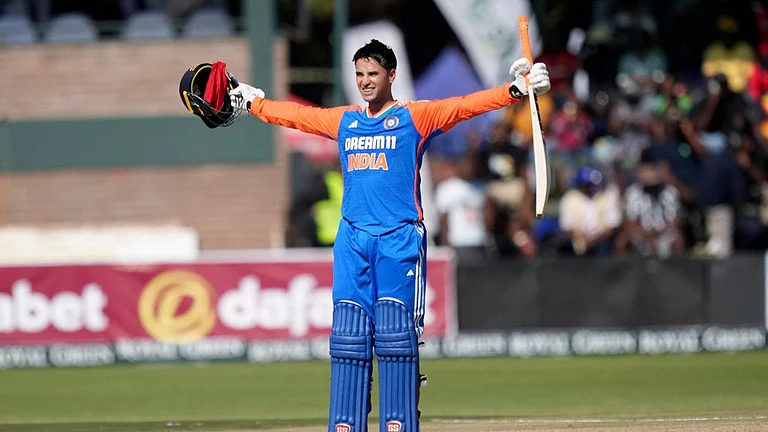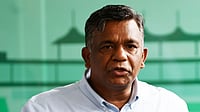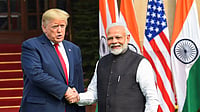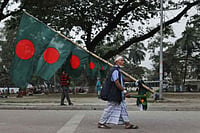The nondescript hamlet of Palli in Jammu and Kashmir's border district of Samba entered into the 'modern history' of India on Sunday as country's first "carbon neutral panchayat" with Prime Minister Narendra Modi dedicating to the nation 500 KV solar plant, installed in a record time of nearly three weeks.
Modi, inaugurated the solar power plant amid cheer and applause from the people.
The prime minister said that Palli has shown the way to the country for achieving carbon neutral state. "People of Palli has helped in the project. They have also provided food to people engaged in the project," he said.
In all 1,500 solar panels put up on the total area of 6,408 square metres will provide clean electricity to 340 houses in the model panchayat under the central government’s ‘Gram Urja Swaraj’ programme, officials said.
The residents of Palli in Jammu and Kashmir’s Samba border district are upbeat over the Prime Minister's vist to their village.
They term this day as the "red letter day" in the India's modern history of development and transformation.
"It is red letter day for us. With the blessing of Modi ji, the village has entered into history of India as first carbon neutral solar village. We thank Prime Minister for choosing this hamlet across country," Palli villager Gurdeep Singh said.
From the macadamised roads to the recently launched electric bus service, the village located just 17 kms from the winter capital Jammu is witnessing a major transformation with an upgraded Panchayat Ghar, renovated government high school building, a new pond and improved playfields.
The project was completed at a cost of Rs 2.75 crore in a record time, officials said. The electricity generated will be distributed to the village, having a daily requirement of 2,000 units, through the local power grid station.
The village, which has 450 houses, have been given solar ‘Chulhas’ (stoves) and all the houses will be covered by the next phase after the prime minister’s visit, the officials said.


























